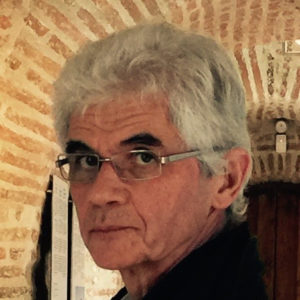Présentation
L'équipe du projet





Alvaro Luna
Post-doctorant


DETECt
Detecting transcultural Identity in European Popular Crime Narratives
Présentation du projet
En français
DETECt : c’est sous ce nom de code pour « Detecting Transcultural Identity in European Popular Crime Narratives » que l’Union Européenne, vient de décider de financer un projet de recherches dans lequel se trouvent engagés trois chercheurs du groupe de recherches en Littérature Populaires et Cultures Médiatiques, qui, au sein de l’EA 1087 EHIC, scrute au long cours les fictions de grande consommation. Au sein d’un consortium piloté par l’Université de Bologne et qui rassemble 18 partenaires de 10 pays différents (12 universités et 6 institutions spécialisées dans la conservation et promotion des productions audiovisuelles), Jacques Migozzi, Natacha Levet et Loïc Artiaga vont donc pendant 40 mois, avec l’appui de chercheurs doctoraux ou post doctoraux, répondre à l’appel institutionnel H2020 « Understanding Europe – Promoting the european public and cultural space ».
Le projet DETECt va étudier comment, des années 1960 à aujourd’hui, les fictions dites criminelles, qui couvrent tout le spectre des genres du récit policier, du récit d’espionnage, du thriller…, dans leurs multiples déclinaisons multimédiatiques contemporaines ( littératures sérielles, cinéma, télé …), traduisent symboliquement les mutations des identités individuelles et collectives dans un espace européen lui-même traversé par les turbulences de l’Histoire. Les acquis de cette recherche seront valorisés de manières diverses, classiques (colloques, publications…) mais aussi innovantes ( production de supports d’enseignement ou d’ applis grand public …).
( Texte de J. Migozzi, paru dans LU en Janvier 2018)
En anglais
The project examines examples of crime fiction, film and TV dramas from 1989 to present, to learn how mobility strategies such as co-production, serialization, translation, adaptation, distribution, and more, have influenced the transnational dissemination of European popular culture. It also investigates how the treatment of specific ‘mobile signifiers’—including representations of gender, ethnic and class identities—affect the ability of European narratives to migrate outside their place of origin, and be appropriated elsewhere in different and variegated ways. Researching the contemporary history of the crime genre in Europe, DETECt aims to identify the practices of production, distribution and consumption that are best suited to facilitate the emergence of engaging representations of Europe’s enormously rich, plural and cross-cultural identity. The knowledge acquired through a detailed research programme will be used in cultural, learning and public engagement initiatives designed to prompt the elaboration of new transnational formats for the European creative industries. These activities will profit from a set of experimental research and learning resources and innovative collaborative tools, aggregated and organized on DETECt Web portal. A range of activities will be addressed to the general public. In particular, the development of a Web mobile app tools will allow users to contribute to the creation of a collaborative atlas of European crime narratives.
( texte en anglais extrait du site général)
Pour suivre les actualités du programme
Pour suivre la chaîne Youtube

